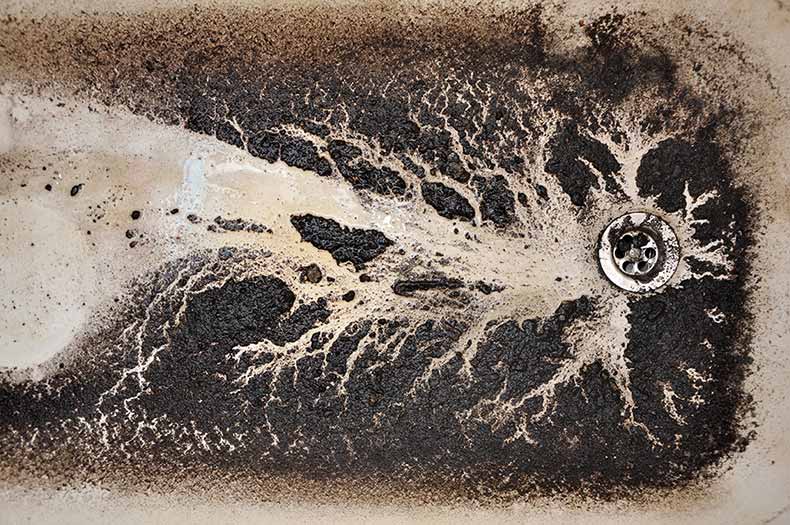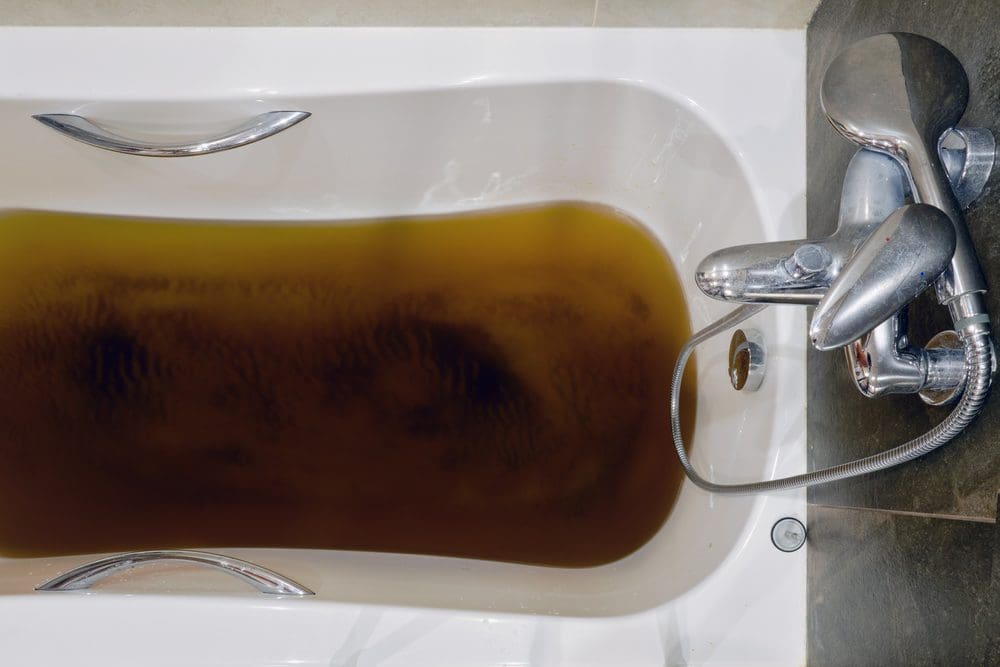How do you really feel in regards to Water Coming up Bathtub Drain?

Sewer backup in the bathtub can be a traumatic and unsanitary problem for any kind of home owner. Not only is it inconvenient, yet it likewise postures severe health and wellness threats and indicates underlying concerns with the plumbing system. Understanding why sewer is coming up with the tub is critical for taking proper activity to address the problem successfully.
Introduction to the Issue
Common Reasons for Sewer Back-up
Blockages in the Sewage System Line
Among one of the most common reasons for sewage back-up is an obstruction in the drain line. This can take place because of the build-up of debris, oil, or international items in the pipes, protecting against proper flow and creating sewage to support right into your bathtub.
Tree Origin Invasion
Tree roots seeking moisture and nutrients can infiltrate sewage system lines with small splits or joints. Over time, these roots can grow and broaden, triggering substantial damage to the pipes and causing sewer backup problems.
Recognizing the Problem
When sewer draws back up into the bathtub, it's a clear indication of a problem with the water drainage system. The wastewater that ought to be flowing far from your home is instead finding its way back right into your living space, which can result in considerable damage and carcinogen.
Potential Reasons
Numerous aspects can contribute to sewer back-up in the bath tub. From blockages in the drain line to problems with the plumbing framework, determining the origin is important for discovering an option.
Aging Framework
Older homes might have outdated plumbing systems that are more at risk to rust, splits, and deterioration. As pipelines age, they end up being extra prone to leakages and blockages, increasing the likelihood of sewer backup occurrences.
Heavy Rainfall or Flooding
Throughout durations of heavy rainfall or flooding, the sewer system may become overwhelmed with excess water, triggering backups and overflows. This can lead to sewer backing up into bathtubs and various other fixtures inside the home.
Signs of Sewer Backup
Foul Odors
Unpleasant odors rising from drains or components, specifically in the restroom, might show sewer back-up problems. These smells are often strong and persistent, signifying a trouble that requires instant interest.
Slow Draining Fixtures
Bath tubs, sinks, and toilets that drain pipes gradually or not in any way could be experiencing sewer backup. If numerous components are impacted concurrently, it's most likely that the concern originates from an usual point, such as the main drain line.
Gurgling Sounds
Odd gurgling or gurgling noises originating from drains pipes when water is running in other places in your home are indicative of air entraped in the plumbing system. This air build-up can result from sewer back-up and need to be checked out immediately.
Wellness Dangers Related To Sewer Back-up
Contamination of Water Supply
Sewage backup can infect the water in your home, presenting a serious health and wellness danger to you and your family members. Exposure to polluted water can bring about gastrointestinal issues, skin infections, and other health problems.
Mold and mildew Growth
Moisture from sewage back-up can create optimal conditions for mold and mildew development in your home. Mold and mildew spores can exacerbate respiratory system problems and cause allergies in sensitive people, making timely cleanup necessary.
Spread of Disease
Sewer includes hazardous germs, infections, and bloodsuckers that can trigger a variety of diseases, including hepatitis, cholera, and gastroenteritis. Entering into contact with sewer or polluted surface areas places you in danger of infection.
Cleaning Up After Sewer Back-up
Sanitation Procedures
Completely disinfect and disinfect affected areas after sewer back-up to eliminate unsafe microorganisms and protect against mold development. Usage appropriate cleansing items and safety equipment to ensure secure and effective cleanup.
Repair of Influenced Areas
Repair any kind of damages to floor covering, walls, or fixtures triggered by sewer back-up. Relying on the degree of the damage, you may need to change carpets, drywall, or various other materials to recover your home to its pre-loss problem.
Immediate Actions to Take
Shutting Off Water
In the event of sewer back-up, it's necessary to turn off the supply of water to prevent additional contamination and damage. Situate the main water shutoff valve in your house and shut it off up until the problem can be settled.
Calling a Specialist Plumber
Taking care of sewer back-up is not a do it yourself work. Contact a qualified plumber with experience in handling sewage-related issues to evaluate the scenario and perform necessary fixings or clean-ups.
Avoiding Contact with Contaminated Water
Till the sewer back-up is solved, avoid contact with contaminated water to stop the spread of germs and virus. Use safety equipment if you need to be in the afflicted location and wash your hands completely later.
Safety nets
Routine Upkeep of Sewer Lines
Schedule normal inspections and maintenance of your drain lines to determine and deal with prospective issues prior to they intensify right into major problems. This can include cleaning out particles, inspecting for tree origin breach, and fixing any type of damaged pipelines.
Installing Backwater Valves
Take into consideration mounting backwater shutoffs in your plumbing system to stop sewer from receding into your home during periods of heavy rainfall or flooding. These shutoffs immediately close when water draws back up, shielding your residential or commercial property from contamination.
Proper Disposal of Family Waste
Avoid flushing anything aside from bathroom tissue and human waste down the toilet to prevent clogs and obstructions in the drain line. Dispose of grease, oil, and other house chemicals properly to lessen the risk of plumbing problems.
Why is there sewage coming up from my bathtub?
These gas fumes, like hydrogen sulfide – the gas that leaves a rotten egg smell in its wake and is highly flammable and toxic – can be hazardous to your health. Sewage poses major health risks as it contains harmful bacteria and microorganisms that can be dangerous if exposed to them.
Sewage cleanup should be considered an emergency.
So, why is there sewage coming up from your bathroom? There are several common causes of a sewage backup.
The most common reason for sewage coming up through your bathroom is a clogged sewer line. All plumbing in your bathroom connects to a single drain pipe that leads to the sewer line under your house. This drain line carries all wastewater and sewage away from your home to the city’s sewer system.
When the sewer line becomes clogged or blocked, wastewater has nowhere to go but back toward your house. This results in sewage coming up through your drains, often starting with your tub or shower.
Another culprit may be the sewage ejector pump, which is used when a bathroom, laundry room or any other type of plumbing fixture is located below the level of the main sewer or septic line flowing from the house. Most commonly, ejector pumps are used in homes with basement bathrooms or laundry rooms.
When you experience sewage coming up through your bathtub, it’s always best to contact a professional. Attempts to fix a clogged sewer line without experience often lead to more plumbing damage.
Make sure that no one enters the affected area, and open as many windows as possible. Pre-treat the flooded area with small splashes of chlorine bleach. Wear protection gear like rubber gloves, a mask, and water-resistant coveralls.
https://www.shawlocal.com/the-herald-news/sponsored/2022/08/17/omega-plumbing-10199038/

As a passionate reader about What to Do if Sewage Starts Coming Up Through Your Bathtub, I thought sharing that article was worth the trouble. Appreciated our article? Please share it. Let others find it. Thanks a lot for your time spent reading it.
Schedule Now!